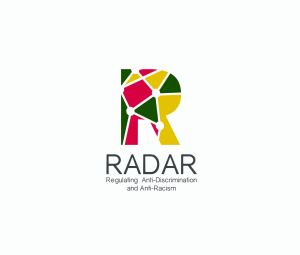The RADAR project has officially started!
Funded by the European Commission Directorate General for Justice, RADAR (RADAR – Regulating AntiDiscrimination and AntiRacism – JUST/2013/FRAC/AG/6271) involves 9 partners including Heriot-Watt and it will be conducted over 24 months (November 2014 – October 2016). The aim is to provide law enforcement officials and legal professionals with the necessary tools to facilitate the identification of “racially motivated” hate communication.
In European societies, increasingly reshaped by migration, the fight against racism and xenophobia is a key challenge for democracy and civil life. Despite anti-discrimination legislation that is in force in EU Member States, there is still a fundamental problem in identifying the different forms of racism and xenophobia. These may consist of physical attacks against people or of hate speech – ‘racial’ and xenophobic discourses “which spread, incite, promote or justify racial hatred, xenophobia, anti-Semitism or other forms of hatred based on intolerance, including: intolerance expressed by aggressive nationalism and ethnocentrism, discrimination and hostility against minorities, migrants and people of immigrant origin” (Council of Europe’s Committee of Ministers” Recommendation 97(20)).
However, it is not always easy to distinguish between, non-‘racial’ and ‘racial’ violence. Even though it is easier to prosecute cases of physical offences against people, it is more difficult – for judges, politicians and the public – to identify when there is xenophobia behind a physical offence, because it has to be interpreted within the context in which it has taken place. This interpretative work allows us to define such actions in terms of hate crime offences. Often ‘racial’ hate crimes are not recognised as such, and this leads to an underestimation of the phenomenon. Treating crimes that are motivated by ‘racial’ hatred as non-‘racial’ crimes leads to the violation of fundamental human rights. It is therefore essential that law enforcing and legal authorities, along with journalists and politicians, have tools for correctly identifying the motivation that underlies such a criminal act.
A hate crime is never an isolated act; it is usually triggered and fostered by hate speech, consisting of discourses that express disdain, hatred, prejudice, etc. Such discourses are performed not only in direct face-to-face communication through public and private conversations, but they also take place online, in political discourses, as well as in other institutional contexts. It has to be stressed that not only hate speech in the sense of verbal messages leads to hate crimes, but this is inspired also by other hate-oriented communication practices based on other communication levels, such as voice (paraverbal message), body-language (non-verbal message), images (visual message). Finally, the racist discourse often does not simply assume the forms of explicit hatred, prejudice and disdain, but it takes the form of an apparently benevolent recognition of the differences that, however, presupposes a stereotypisation of an individual’s cultural and social identity. It seems like a respectful recognition of differences, but it turns into stereotypes and prejudices that become labels and stigmas for the individuals.
Therefore, the overall aim of this project is to provide law enforcement officials and legal professionals with the necessary tools, mainly through open training activities, aimed at facilitating the identification of ‘racial’ motivated hate communication. For this purpose, a communication-based training concept is worked out, on the one side, for professionals and actual or potential hate-crime victims (national level) and, on the other side, for trainers (international level). Further learning resources and facilities are provided to offer online learning events. Finally the project aims at producing a publication with concrete tools, recommendations and best practice examples to facilitate anti-discrimination and anti-racist actions and regulations.
Watch this space for the project website and further details. For more information, contact Katerina Strani in LINCS.


[…] few months ago we posted some information on a new research project in LINCS on how racist hate crimes are communicatively constructed. The […]